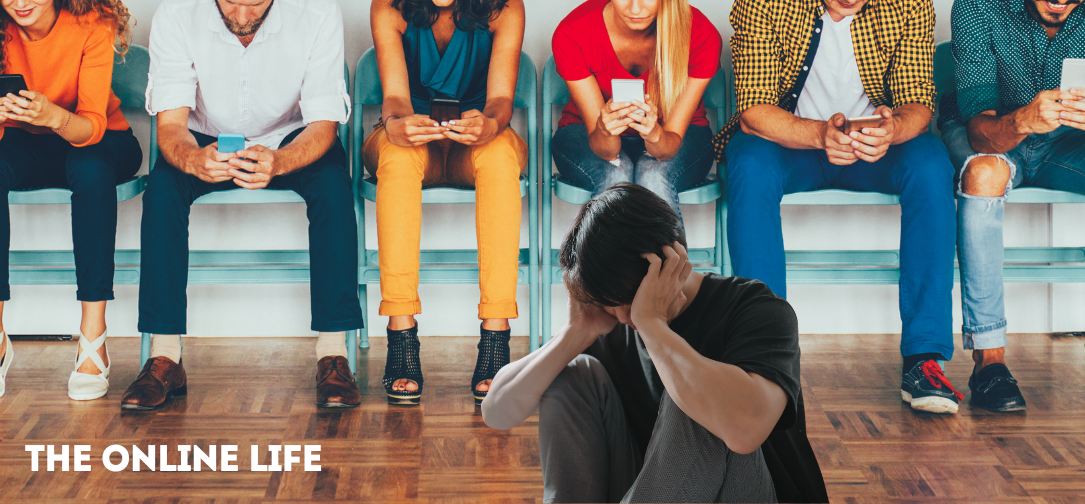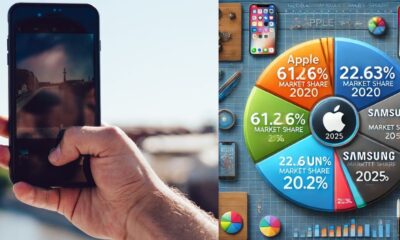Mental Health
Social Media and Mental Health: The Impact of Online Life

In the digital age, social media platforms have become an integral part of our lives, revolutionizing how we communicate, share information, and form relationships. This year, 2024, approximately 4.9 billion people worldwide use social media, an increase from 3.5 billion in 2020. With such extensive reach, social media has transformed the landscape of human interaction, offering both opportunities and challenges. One of the most pressing concerns associated with the rise of social media is its impact on mental health. This article delves into the multifaceted relationship between social media use and mental health, exploring both the positive and negative effects, underlying mechanisms, and potential solutions.
The Rise of Social Media
Social media emerged in the early 2000s, with platforms like Facebook, Twitter, and YouTube redefining how individuals connect with one another. Initially celebrated for fostering communication and community-building, these platforms have grown to encompass a vast array of activities, from sharing personal milestones to engaging in global discussions. As technology advances, newer platforms such as Instagram, TikTok, and Snapchat have further captured the attention of younger audiences, emphasizing visual content and ephemeral communication.
The proliferation of smartphones and the internet has made social media accessible to nearly everyone, regardless of geographical location. With the ability to share thoughts, experiences, and creativity instantly, users often find themselves engrossed in the digital world. While this digital engagement provides a sense of belonging and connection, it also raises concerns about mental health, particularly among vulnerable populations such as adolescents and young adults.
Positive Impacts of Social Media on Mental Health
While the negative impacts of social media often dominate the discourse, it is essential to recognize the positive aspects that can contribute to mental well-being:
1. Connection and Community Building
Social media facilitates connections that transcend geographical barriers, allowing individuals to connect with like-minded people. For those who feel isolated or marginalized, online platforms can provide a supportive community where they can share experiences, seek advice, and find understanding. For instance, individuals dealing with chronic illnesses, mental health issues, or unique life circumstances often find solace in online groups where they can relate to others facing similar challenges.
2. Access to Resources and Information
Social media serves as a valuable source of information about mental health. Many organizations and professionals use these platforms to disseminate educational content, raise awareness, and combat stigma surrounding mental health issues. Users can access articles, videos, and support resources that empower them to seek help or understand their mental health better. Initiatives like Mental Health Awareness Month leverage social media to promote discussions and share resources, making mental health knowledge more accessible.
3. Creative Expression and Identity Exploration
Platforms like Instagram, TikTok, and YouTube offer opportunities for creative expression, allowing users to share their talents, interests, and perspectives. Engaging in creative activities can enhance mood and promote self-esteem, contributing positively to mental health. For many, social media serves as a canvas for self-exploration, enabling individuals to experiment with their identities and connect with others who resonate with their experiences.
4. Support Networks and Peer Support
Online communities can provide crucial support for individuals experiencing mental health challenges. Many people find comfort in sharing their struggles and receiving encouragement from others who have faced similar issues. Peer support can be incredibly impactful, as individuals often feel more comfortable discussing their feelings with others who understand their circumstances. This type of social support can reduce feelings of loneliness and foster resilience.
Negative Impacts of Social Media on Mental Health
Despite the potential benefits, social media also poses significant risks to mental health. These negative impacts can manifest in various ways, often compounding existing vulnerabilities.
1. Anxiety and Depression
Numerous studies have established a correlation between social media use and increased symptoms of anxiety and depression. The constant barrage of curated content can create unrealistic expectations and feelings of inadequacy. Users may find themselves comparing their lives to the highlight reels presented by others, leading to diminished self-esteem and feelings of inadequacy. A study published in the journal Cyber psychology, Behavior, and Social Networking found that increased social media use is associated with higher levels of anxiety and depression, particularly among adolescents.
2. Cyber bullying and Online Harassment
The anonymity provided by social media can lead to negative behaviors, including cyber bullying and harassment. Victims of online bullying often experience heightened feelings of anxiety, depression, and isolation. The pervasive nature of social media means that harmful comments can follow individuals into their personal lives, creating a continuous cycle of distress. Research indicates that individuals who experience cyber bullying are at a higher risk for developing mental health issues, including depression and suicidal ideation.
3. Sleep Disturbances
Excessive social media use can disrupt sleep patterns, contributing to mental health issues. Many individuals engage with social media late into the night, sacrificing sleep for digital interaction. Poor sleep quality is closely linked to mental health problems, including anxiety and depression. A study published in the Journal of Clinical Sleep Medicine found that individuals who spend more time on social media report higher rates of sleep disturbances, which in turn can exacerbate mental health issues.
4. Addiction and Compulsive Use
Social media can be addictive, leading to compulsive behaviors that detract from real-life experiences. The “fear of missing out” (FOMO) can drive users to check their accounts repeatedly, disrupting daily activities and relationships. This compulsive use can lead to a sense of disconnection from reality, fostering feelings of anxiety and depression. A study in the American Journal of Psychiatry found that high social media usage was linked to an increased risk of developing addictive behaviors, which can further exacerbate mental health challenges.
Underlying Mechanisms: Why Social Media Affects Mental Health
Understanding how social media impacts mental health requires exploring several underlying mechanisms. These factors can help explain why certain individuals may be more susceptible to negative outcomes.
1. Social Comparison Theory
Social comparison theory posits that individuals evaluate themselves based on comparisons with others. Social media amplifies this phenomenon, as users are constantly exposed to the curated lives of peers and influencers. This can lead to negative self-perception and feelings of inadequacy. Research has shown that individuals who engage in social comparison on social media are more likely to experience depressive symptoms, particularly when they perceive others as being happier or more successful.
2. Fear of Missing Out (FOMO)
FOMO is a psychological phenomenon characterized by the anxiety of missing out on rewarding experiences that others may be having. Social media exacerbates FOMO by providing a constant stream of updates about friends and acquaintances. This can lead to feelings of isolation and dissatisfaction, as individuals may feel pressured to participate in social events or experiences they see online. Studies have found a significant correlation between FOMO and negative mental health outcomes, including increased anxiety and depression.
3. Echo Chambers and Polarization
Social media platforms often create echo chambers, where users are exposed primarily to views that align with their own. This can reinforce negative beliefs about oneself and others, contributing to feelings of isolation and despair. Additionally, the polarization of opinions on social media can exacerbate conflicts and promote negative mental health outcomes. The psychological effects of engaging in highly charged discussions can lead to stress and anxiety, particularly in politically or socially divisive contexts.
4. The Role of Algorithms
Social media algorithms play a crucial role in shaping user experiences by determining what content is shown. These algorithms often prioritize sensational or emotionally charged content, which can contribute to negative mental health outcomes. Exposure to distressing news, graphic content, or unrealistic portrayals of life can create a cycle of negativity that affects users’ mental well-being. Understanding how algorithms influence our social media experience can help users make more conscious choices about their online engagement.
Vulnerable Populations: Who is Most Affected?
While social media affects everyone, certain populations are particularly vulnerable to its negative impacts on mental health:
1. Adolescents and Young Adults
Research indicates that adolescents and young adults are at a heightened risk for negative mental health outcomes related to social media use. This age group is particularly susceptible to social comparison, cyberbullying, and peer pressure. A report from the American Psychological Association suggests that the prevalence of anxiety and depression among adolescents has increased significantly in recent years, coinciding with the rise of social media.
2. Individuals with Preexisting Mental Health Issues
Those with preexisting mental health conditions may find social media to be a double-edged sword. While it can provide support, it can also exacerbate symptoms. For instance, individuals with anxiety disorders may find that social media increases their sense of isolation or triggers anxiety through social comparison. Similarly, those with depression may struggle with motivation to engage in offline activities when they are absorbed in the digital world.
3. Marginalized Groups
Marginalized populations, including LGBTQ+ individuals, people of color, and those with disabilities, may experience unique challenges on social media. While online spaces can provide community and support, they can also be sites of discrimination and harassment. The negative impact of cyber bullying and online hate can significantly affect the mental health of individuals from marginalized backgrounds, leading to increased feelings of alienation and distress.
Strategies for Healthy Social Media Use
Given the profound impact of social media on mental health, it is essential to cultivate healthy online habits. Here are some strategies for individuals to mitigate the negative effects of social media:
1. Set Boundaries
Establishing clear boundaries around social media use can help individuals manage their engagement. This may involve setting time limits on usage, designating specific times for checking social media, and taking regular breaks from online platforms. Encouraging digital detoxes can help individuals reconnect with real-life experiences and relationships.
2. Curate Content Mindfully
Being intentional about the content consumed on social media can help mitigate negative effects. Users should consider unfollowing accounts that trigger feelings of inadequacy or anxiety and seek out content that promotes positivity and mental well-being. Following accounts that provide support, encouragement, and educational resources can create a more uplifting online experience.
3. Practice Self-Compassion
Cultivating self-compassion can help individuals navigate the challenges of social media use. Recognizing that everyone faces struggles, regardless of what they present online, can reduce the pressure to compare oneself to others. Practicing self-acceptance and reframing negative thoughts can foster resilience and improve mental health.
4.Engage in Offline Activities
Balancing online engagement with offline activities is crucial for mental well-being. Pursuing hobbies, spending time with friends and family, and engaging in physical activity can help individuals feel more connected to the real world. These activities can also provide opportunities for fulfillment and joy outside of social media.
5. Seek Professional Help When Needed
If social media use is contributing to significant mental health challenges, seeking professional help is essential. Therapists and counselors can provide support and coping strategies tailored to individual needs. Additionally, mental health hotlines and online therapy platforms can offer immediate assistance for those in crisis.
Conclusion
The intersection of social media and mental health is complex, characterized by both potential benefits and significant risks. As digital interactions become increasingly central to our lives, understanding this relationship is crucial for promoting mental well-being. While social media can facilitate connection and provide resources, it also poses risks related to anxiety, depression, and social comparison.
By fostering awareness, promoting healthy online habits, and encouraging supportive communities, we can navigate the digital landscape more effectively. As individuals, society, and mental health professionals work together to address these challenges, we can harness the power of social media to enhance, rather than hinder, mental well-being.
In a rapidly evolving digital world, the dialogue surrounding social media and mental health must continue. By prioritizing mental health and embracing a balanced approach to online engagement, we can create a healthier, more supportive environment for ourselves and future generations.
-

 Press Release6 days ago
Press Release6 days agoCrypto WINNAZ Launches First On-Chain Yield Engine for Meme Coins, Enabling 20x–300x Returns
-

 Press Release4 days ago
Press Release4 days agoBellarium ($BEL) Price Prediction: Could It Hit $5 by 2026?
-

 Press Release2 days ago
Press Release2 days agoPreventive Vaccines Market to Witness Strong Growth by 2035
-

 Press Release20 hours ago
Press Release20 hours agoClinical Trials Market Set for Robust Growth, Driven by Drug Development Surge and Digital Innovation
-

 Business3 days ago
Business3 days agoHow Managed IT Solutions Help Small Teams Compete at Enterprise Scale
-

 Press Release2 days ago
Press Release2 days agoGreen Bio Chemicals Market Poised for Sustainable Growth amidst Global Shift to Eco-Friendly Alternatives by 2035
-

 Press Release2 days ago
Press Release2 days agoFill-Finish Pharmaceutical Contract Manufacturing Market Expected to Flourish Amid Biopharmaceutical Boom and Global Outsourcing Trend by 2035
-

 Press Release2 days ago
Press Release2 days agoIndustrial Boiler Market Expected to Surpass USD 24.4 Billion by 2035 Amid Growing Demand for Energy Efficiency and Industrialization






























